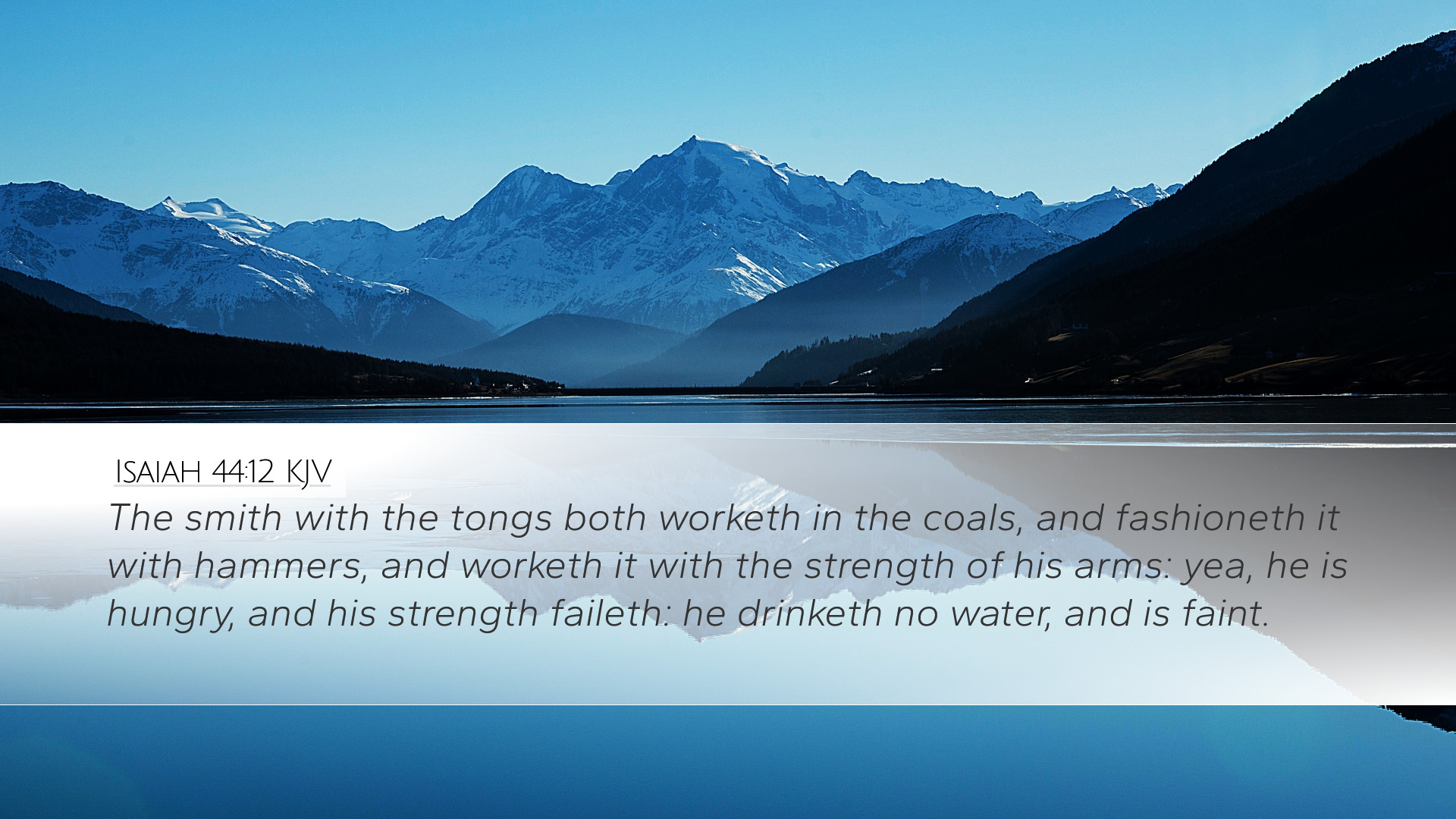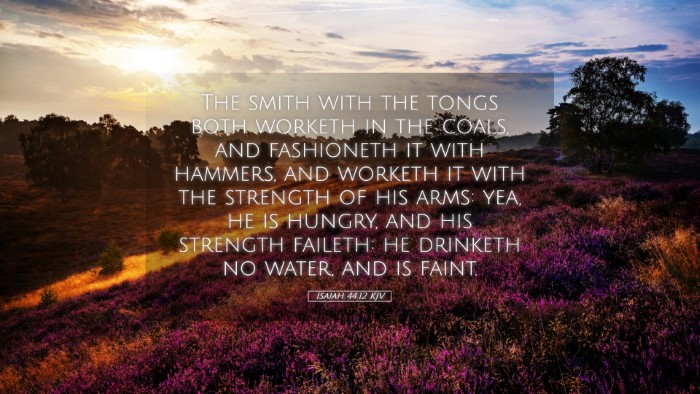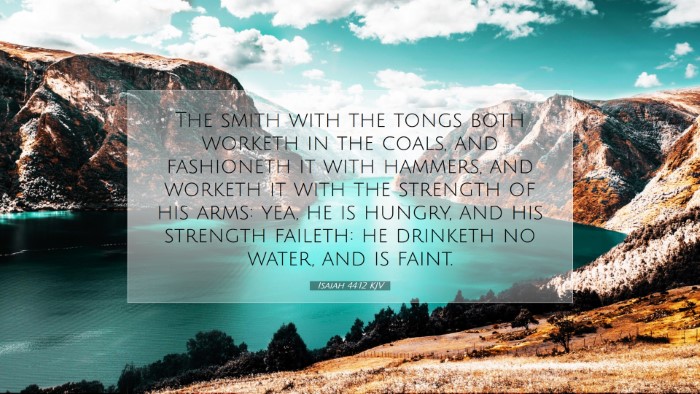Isaiah 44:12 - Commentary Summary
Bible Verse: "The smith with the tongs both worketh in the coals, and fashioneth it with hammers, and works it with the strength of his arms: yea, he is hungry, and his strength faileth: he drinketh no water, and is faint."
Overview
In this verse, the prophet Isaiah employs the imagery of a blacksmith to illustrate the futility of idolatry and human craftsmanship in contrast to the divine craftsmanship of God. The blacksmith's labor is intense and requires both skill and strength, yet the products of his work—idols—are utterly powerless compared to the living God.
Insights and Exegesis
1. The Labor of the Smith
Matthew Henry comments on the detailed labor of the smith: "The smith is depicted as one who not only works diligently but is also subjected to the hardships and fatigue of his work. This serves to highlight the effort put into crafting that which is ultimately lifeless." This observation reflects the toil inherent in producing anything outside God's power.
Albert Barnes adds further depth, stating, "The smith employs tools and hammers, reflecting the human effort in crafting idols which are the work of man's hands and not of God's. The process of forging an idol presents a vivid picture of the effort and skill used to create a god that cannot save." This critique of making idols underscores the limitations and imperfections of human endeavors.
2. The Weakness of Man
Adam Clarke emphasizes the weariness of the smith, noting that despite his strength and skill, he grows faint and is in need of sustenance: "Even the strongest of men can find their strength diminished. This metaphor serves as a reminder that human efforts can ultimately fail." Here, Clarke points to a broader theological truth—the limitations and failures of humanity in the service of false gods.
Matthew Henry echoes this, stating, "The very essence of the blacksmith's efforts is an acknowledgment of his need. The hunger and faintness remind us of our physical limitations, even as we strive to do what we perceive to be necessary." The acknowledgment of weakness is crucial for understanding how humans react to spiritual and existential needs.
Contrast with the Divine Craftsmanship
The imagery of the blacksmith in this verse starkly contrasts with God's creative power. While the smith laboriously shapes metal into an idol, God speaks and things come into being. This emphasis showcases the sovereignty and majesty of God in comparison with the frail efforts of human hands.
3. The Futility of Idolatry
Both Barnes and Clarke agree on the theme of futility in idol worship. Barnes notes: "The idol, while it may be made with strength and skill, is nonetheless devoid of life or power. The smith exhausts himself to create what can neither hear nor see, illuminating the absurdity of idol worship." This statement reinforces the biblical narrative that presents God as the only true sustainer of life.
Clarke remarks, "The imagery shows how men exert tremendous effort to worship what they themselves create, leading to a cyclical problem: we labor to fashion what cannot aid us in our labor." Thus, the verse serves as a poignant reflection on the dangers of misplaced spiritual devotion.
Theological Implications
This verse also invites deeper reflection on the theological implications surrounding human idolatry and divine sovereignty.
4. Dependence on God
Henry stresses that "in contrast to the exhaustion of the smith, our dependence must be on God, who never grows weary." This presents a crucial aspect of faith—trusting in God's life-sustaining power instead of relying on the dead works of our hands.
Moreover, Barnes opines that "the imagery points to the idea that while one may exert themselves in religious practices or rituals, unless these are directed towards the living God, they remain futile." Thus, the call remains for humankind to return to the source of true strength.
Conclusion
The depiction of the smith in Isaiah 44:12 serves as a profound metaphor for the futility of idolatry, human effort, and a stark reminder of our dependence on God. This verse beckons readers, theologians, pastors, and all learners of Scripture to consider not just the nature of the idols we may create but also the source of our strength—ultimately found within the living and sovereign God.
In summary, Isaiah 44:12 challenges us to reflect on our efforts, acknowledging our frailty while affirming the power and supremacy of God over all creation. This rich tapestry of thought continues to resonate, calling believers to worship Him in spirit and truth.


